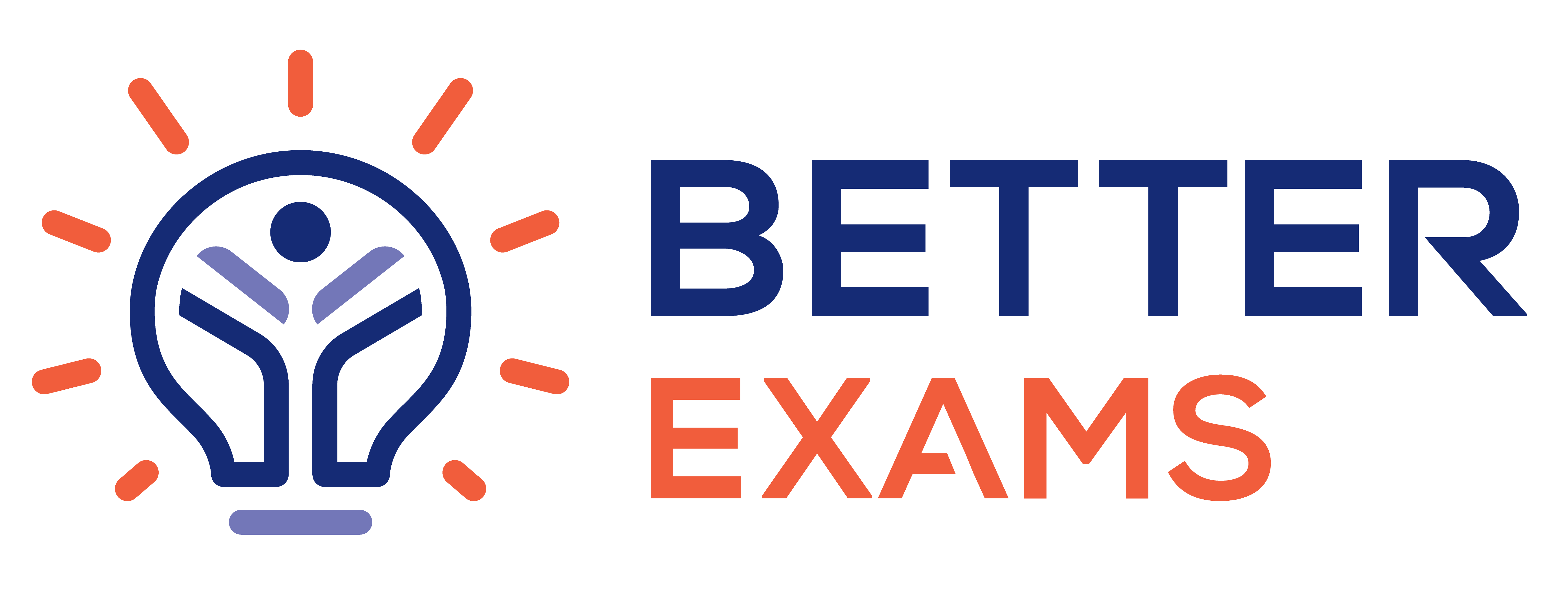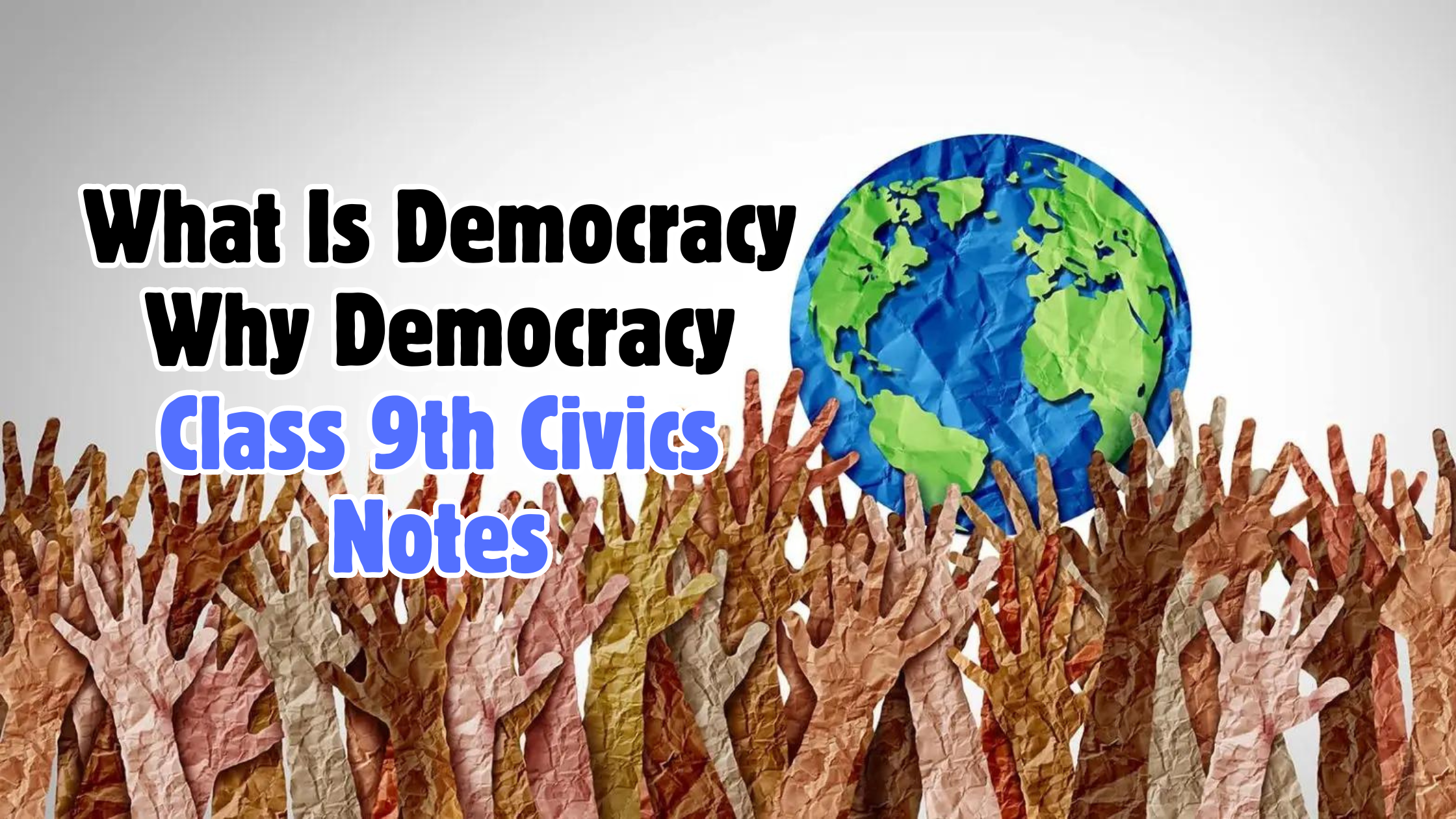We are providing you with a short and detailed summary of the lesson What is democracy Why is democracy along with the ncert solutions for the students to be able to get the idea as to how to deal with the answers in the examinations. This chapter will focus on four important concepts that will build our own view of looking at the present scenario.
- Meaning of Democracy
- Features of Democracy
- Importance of democracy
- Alternatives to Democracy.
What is Democracy?
Democracy is a form of government in which the rulers are elected by the people. People are the kingmakers and decide as to whom they should choose as their representatives to govern the country.
- Myanmar where the army rules, Dictator Pinochet’s rule in Chile, or President Nkrumah’s rule in • Ghana was not democratic. They were not chosen by the people.
- Like the king of Nepal or Saudi Arabia, hereditary kings are also not democratic rulers. They rule because they were born into noble families.
- In Pakistan, President Musharraf had the power to dismiss national and state assemblies; so the final powers vested in the hands of the military army and the General himself. We cannot call it a democracy. Now Pakistan has an elected government.
Democracy must be based on a free and fair election where those currently in power have a fair chance of losing. For example, in Mexico elections have been held every six years since 1980. But the same party, PRI, has won the elections. Obviously, there has been rigging and malpractices, with freedom denied to the opposition. This is not what a democracy should be.
In a democracy, people’s will is ascertained by each adult citizen having one vote and each vote has one value. Democracy is based on the fundamental principle of political equality. Every person has the right to use his/ her voting powers under article 326. It is both a constitutional and political right.
A democratic government rules within the limits set by constitutional and citizens’ rights. A democratic government cannot do what it likes after winning the elections. It has to respect certain basic rules and is accountable not only to the people but also to other independent officials.
Pillars Of Democracy
- The Sovereignty of people
- Consent based government
- Majority rules
- Free and fair elections
- Guarantee of human rights
- Equality before the law
- Pragmatism
- Cooperation
- Values of tolerance
Why Democracy?
Points Against
There has been a criticism of democracy by various people. The charges are that:
- It creates instability by changing its leaders frequently.
- Democracy is about power play and political competition. Sense of morality has not been there to help others.
- So many people have to be consulted before any issue is resolved. It leads to delay when we need instant action.
- Elected leaders do not know the best interest of the people.
- It leads to corruption for it is based on electoral corruption.
- Ordinary people do not know what is good for them, so decision-making should not be left to them.
Alternative to Democracy
To overcome political instability and legislative gridlock associated with democratic rule, expansions of executive power and limits on democratic freedoms are been looked for.
An exceptional example is that of Russia’s transition from unstable democracy in the 1990s to economic growth and political stability.
NCERT Solutions For Class 9 What Is Democracy Why Democracy?
1.Here is some information about the four countries. Based on this information, how would you classify each of these countries? Write ‘democratic’, ‘undemocratic’ or ‘not sure’ against each of these.
(a) Country A: People who do not accept the country’s official religion do not have a right to vote.
(b) Country B: The same party has been winning elections for the last twenty years.
(c) Country C: The ruling party has lost in the last three elections.
(d) Country D: There is no independent election commission.
Answer:
(a) Undemocratic
(b) Not sure
(c) Democratic
(d) Undemocratic
2.Here is some information about the four countries. Based on this information, how would you classify each of these countries? Write ‘democratic’, ‘undemocratic’ or ‘not sure’ against each of these.
(a) Country P: The parliament cannot pass a law about the army without the consent of the Chief of Army.
(b) Country Q: The parliament cannot pass a law reducing the powers of the judiciary.
(c) Country R: The country’s leaders cannot sign any treaty with another country without taking permission from its neighboring country.
(d) Country S: All the major economic decisions about the country are taken by officials of the central bank which the ministers cannot change.
Answer:
(a) Undemocratic
(b) Democratic
(c) Undemocratic
(d) Undemocratic
3.Which of these is not a good argument in favor of democracy? Why?
(a) People feel free and equal in a democracy.
(b) Democracies resolve conflict in a better way than others.
(c) Democratic government is more accountable to the people.
(d) Democracies are more prosperous than others.
Answer:
(d) Democracies are more prosperous than others.
This would not be a better agreement as it is not at all focusing on the prosperity of the country as well as people. A democratic country like India is still developing while we have seen examples of prospering monarch nations.
4.Each of these statements contains a democratic and undemocratic element. Write out the two separately for each statement.
(a) A minister said that some laws have to be passed by the parliament to conform to the regulations decided by the World Trade Organisation (WTO).
(b) The Election Commission ordered re-polling in a constituency where large-scale rigging was reported.
(c) Women’s representation in the parliament has barely reached 10 percent. This led women’s organizations to demand one-third of the seats for women.
Answer:
(a) Democratic: Passing of the laws by the Parliament.
Undemocratic: Conforming to the regulations decided by the World Trade Organisation.
(b) Democratic: The order to re-poll by the Election Commission.
Undemocratic: large scale rigging was reported
(c) Democratic: Demand by the Women’s Organisation to reserve one-third of seats for women.
Undemocratic: Women’s representation in parliament is less than 10 percent.\
5.Which of these is not a valid reason for arguing that there is a lesser possibility of famine in a democratic country?
(a) Opposition parties can draw attention to hunger and starvation.
(b) Free press can report suffering from famine in different parts of the country.
(c) The Government fears its defeat in the next elections.
(d) People are free to believe in and practice any religion.
Answer:
(d) “People are free to believe in and practice any religion” is not a valid reason because there are lesser chances for famine to take place in a democratic country. This is because practicing religion is not at all related to famine.
6.There are 40 villages in a district where the government has made no provision for drinking water. These villagers met and considered many methods of forcing the government to respond to their needs. Which of these is not a democratic method?
(a) Filing a case in the courts claiming that water is part of the right to life.
(b) Boycotting the next elections to give a message to all parties.
(c) Organising public meetings against the government’s policies.
(d) Paying money to government officials to get water.
Answer:
(d) Paying money to government officials to get water is an undemocratic method.
7. Write a response to the following arguments against democracy.
(a) Army is the country’s most disciplined and corruption-free organization. Therefore the army should rule the country.
(b) Rule of the majority means the rule of ignorant people. What we need is the rule of the wise, even if they are in small numbers.
(c) If we want religious leaders to guide us in spiritual matters, why not invite them to guide us in politics as well. The country should be ruled by religious leaders.
Answer:
1.Though the Army is a disciplined body and corruption-free organization, this does not mean that it should be given all rights as they do not form a democratic nation. People in their rule would not be able to say or voice their interests. Their freedom to express along with the other fundamental rights would be suppressed. For e.gThe people of Chile suffered from this situation under General Augusto Pinochet.
2. Such a thing would be against the principle of the Universal Adult Franchise, wherein every person above the age of 18 yrs in our country irrespective of religion, caste, sex, socio-economic background, etc. has the right to vote. Everyone has the right to participate equally in the formation of the government.
3. Religious leaders can cause turbulence in a nation like India as we know that India has been a diverse nation and every religion is respected and preached. There can be serious trouble and chances of a conflict.
8. Are the following statements in keeping with democracy as a value? Why?
(a) Father to daughter: I don’t want to hear your opinion about your marriage. In our family children marry where the parents tell them to.
(b) Teacher to student: Don’t disturb my concentration by asking me questions in the classroom.
(c) Employee to the officer: Our working hours must be reduced according to the law.
Answer:
(a) it is undemocratic as a girl has the right to choose her partner and can voice her interests. Every citizen has the right to the same who are 18 years or above.
(b) No teacher can stop his/ her students from asking their questions. The best she can do is resolve their doubts after the lecture or period.
(c)The statement made is democratic because here the employees are asking for their fundamental rights. Within the norms of the company, the employees are always entitled to ask or request their office for something.
9. Consider the following facts about a country and decide if you would call it a democracy. Give reasons to support your decision.
(a) All the citizens of the country have the right to vote. Elections are held regularly.
(b) The country took a loan from international agencies. One of the conditions for the given loan was that the government would reduce its expenses on education and health.
(c) People speak more than seven languages but education is available only in one language, the language spoken by 52 percent of the country.
(d) Several organizations have given a call for peaceful demonstrations and nation wide strikes in the country to oppose these policies. The government has arrested these leaders.
(e) The government owns the radio and television in the country. All the newspapers have to get permission from the government to publish any news about the government’s policies and protests.
Answer:
(a) Two important features of democracy are regular elections and universal adult franchise.
(b) Undemocratic: because it is undemocratic action to reduce expenses at the cost of the people.
(c) The national language can be a single language because such a concept will bring about national integrity but other languages should also be promoted to bestowed respect.
(d) Democracy provides people the right to strike or the right to free speech and demonstrations.
(e) Controlling one of the pillars of democracy would mean that it is hampering the growth of the nation as it would lead to snatching away the right to express freely.
Conclusion
We have provided you with the detailed short notes of Class 9th political science chapter 1st What Is Democracy? Why Democracy? along with the best possible solutions of the back exercises for students to hone their concepts easily and prepare for the examinations.

